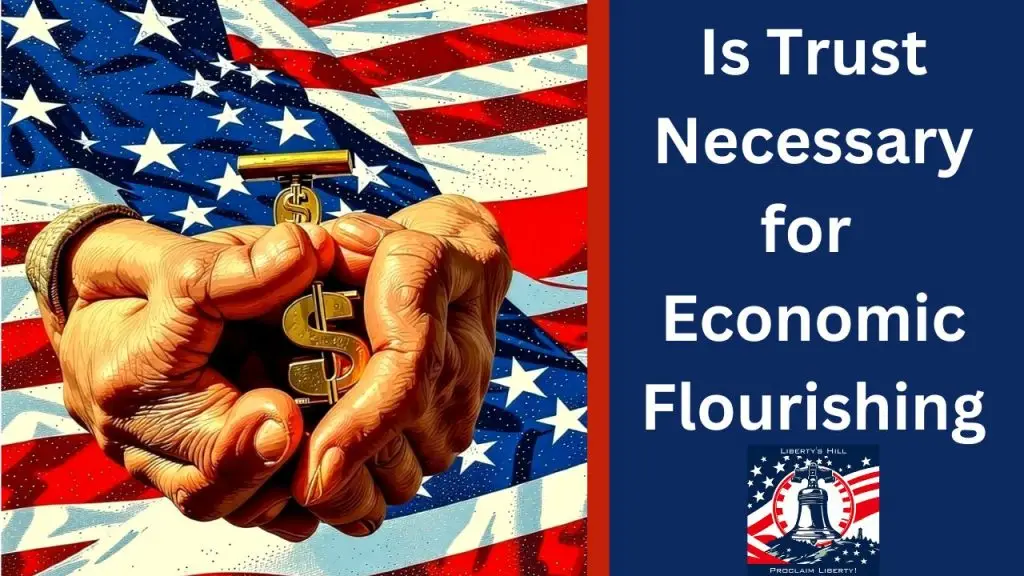Trust and Economic Flourishing: A Deep Dive

Trust plays a critical role in fostering economic flourishing, and this concept is explored through various anecdotes and examples. In this blog, we’ll delve into the nature of trust, its impact on economic systems, and the importance of leadership and human dignity in creating a thriving society.
The Essence of Trust in Business
One compelling story comes from an encounter between Vissal Mangaa and an Indian man during a flight. The Indian man shared his experiences of the challenges faced in the Indian countryside, suggesting that Vissal should consider moving to Britain to pursue business. When Vissal asked why it was easier to do business in Britain, the response was simple yet profound: “It is easy to do business in Britain because they trust you.”
This statement highlights a fundamental truth about economic interactions. In a society where trust is prevalent, both consumers and producers can engage in transactions without the burden of additional costs associated with distrust. For example, Vissal recounted a visit to a farm in Western Europe where he filled a jug with milk, placed the money in a basket, and left with his change. This scenario illustrates how trust eliminates the need for intermediaries, thus reducing costs and making transactions more efficient.

Photo by Sam Carter on Unsplash
The Cost of Sin in Economic Transactions
Vissal Mangaa uses the term “the cost of sin” to describe the additional expenses incurred in a distrustful society. When trust is absent, producers may need to hire clerks or pay regulators to ensure compliance, thereby inflating prices. In this context, “sin” refers to actions that deviate from the ideal, resulting in a broken system that hinders human flourishing.
The analogy of a dilapidated building is fitting here. A society lacking trust resembles a structure that is uninhabitable, requiring significant repairs to restore it to a state suitable for living. This concept resonates with the teachings of Jesus, who emphasized the need to heal and restore rather than condemn. The underlying message is clear: we must work together to mend the fractures in our society to achieve a flourishing world.

Photo by Shane Yancey on Unsplash
The Role of Law in Human Flourishing
Exploring the essence and spirit of the law, Vissal posits that laws should be viewed as a framework for creating a world where human flourishing is possible. The law serves as a guide, not merely a set of rules to follow. It aims to cultivate a society where individuals treat one another with dignity and respect.
For instance, the gleaning laws in biblical narratives highlight a system that allows those in need to gather food from the fields. This practice not only provides sustenance but also preserves the dignity of those who are struggling. The message is clear: we must develop systems that support individuals facing hardships while ensuring their dignity remains intact.
Leadership and Integrity: The Foundation of Trust
The importance of leadership in fostering a culture of trust cannot be overstated. Vissal shares his observations from working in environments where trust was lacking. In one instance, he witnessed a culture of theft and absenteeism among workers, which stemmed from a lack of trust in leadership. When leaders act irresponsibly, it breeds a cycle of distrust that permeates the organization.
In contrast, the story of Boaz, a wealthy business owner in the biblical narrative, exemplifies how leaders can cultivate trust. Boaz treated his workers with respect, creating an environment where they felt valued and appreciated. This approach not only benefited the workers but also contributed to the overall prosperity of the enterprise.

Photo by Kier in Sight Archives on Unsplash
The Impact of Distrust on Workers and Employers
Vissal illustrates the destructive cycle of distrust through his experiences in the auto industry. He recounts how workers engaged in unethical behaviors, such as clocking in and then leaving to drink beer in the woods, driven by their dissatisfaction with corporate leadership. This behavior ultimately harmed the company and its employees alike. When workers feel devalued, they may resort to self-destructive actions that undermine the entire organization.
The lesson here is that trust must flow in both directions. When employees trust their employers and vice versa, a healthier workplace culture emerges. However, when this trust erodes, it leads to a breakdown of the system, resulting in economic decline.
Rebuilding Trust Through a Shared Vision
To restore trust, Vissal emphasizes the need for a shared vision grounded in the ideals of love and respect. He argues that rules alone cannot inspire change; instead, we must dream of a world governed by principles that promote human flourishing. By envisioning a society where trust is the norm, we can motivate individuals to work towards creating that reality.
Moreover, America’s founding principles, which were heavily influenced by biblical ethics, provide a foundation for rebuilding trust. The ideals of liberty, justice, and dignity must be upheld to foster a society where every individual can thrive.

Photo by Swastik Arora on Unsplash
Engaging in the Conversation for Change
Vissal encourages open dialogue about these concepts. By engaging in conversations about trust and its role in economic flourishing, we can collectively work towards a better future. He invites readers to share their thoughts and experiences, fostering a community centered on improving societal conditions.
In conclusion, trust is not just a nicety; it is an essential component of a thriving economy and society. By understanding its importance and working together to cultivate a culture of trust, we can create a world where liberty, justice, dignity, and prosperity flourish.


